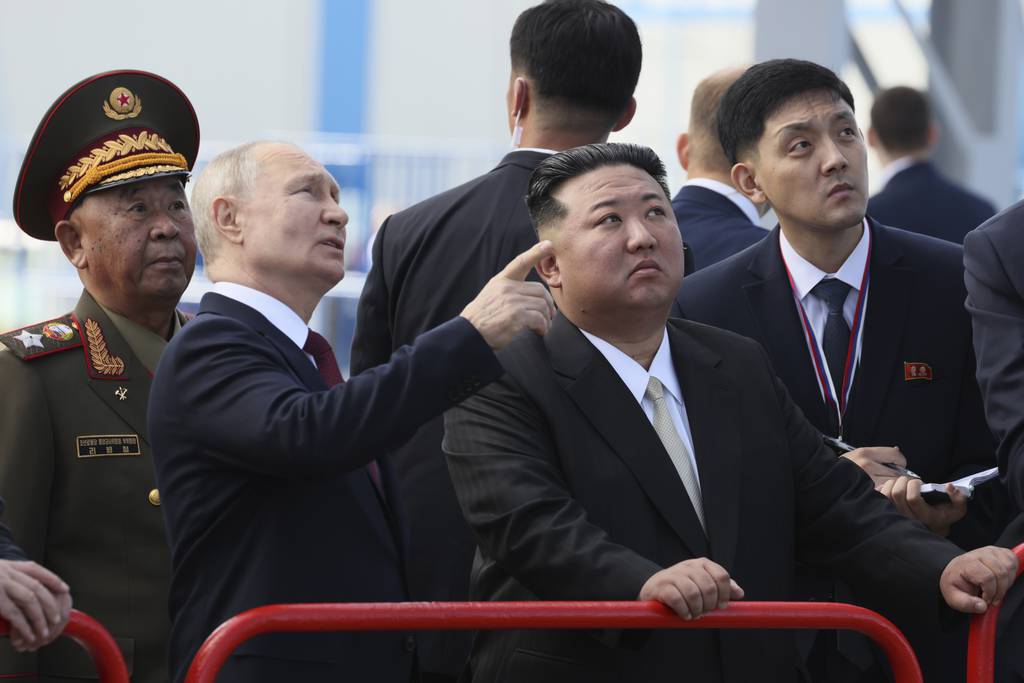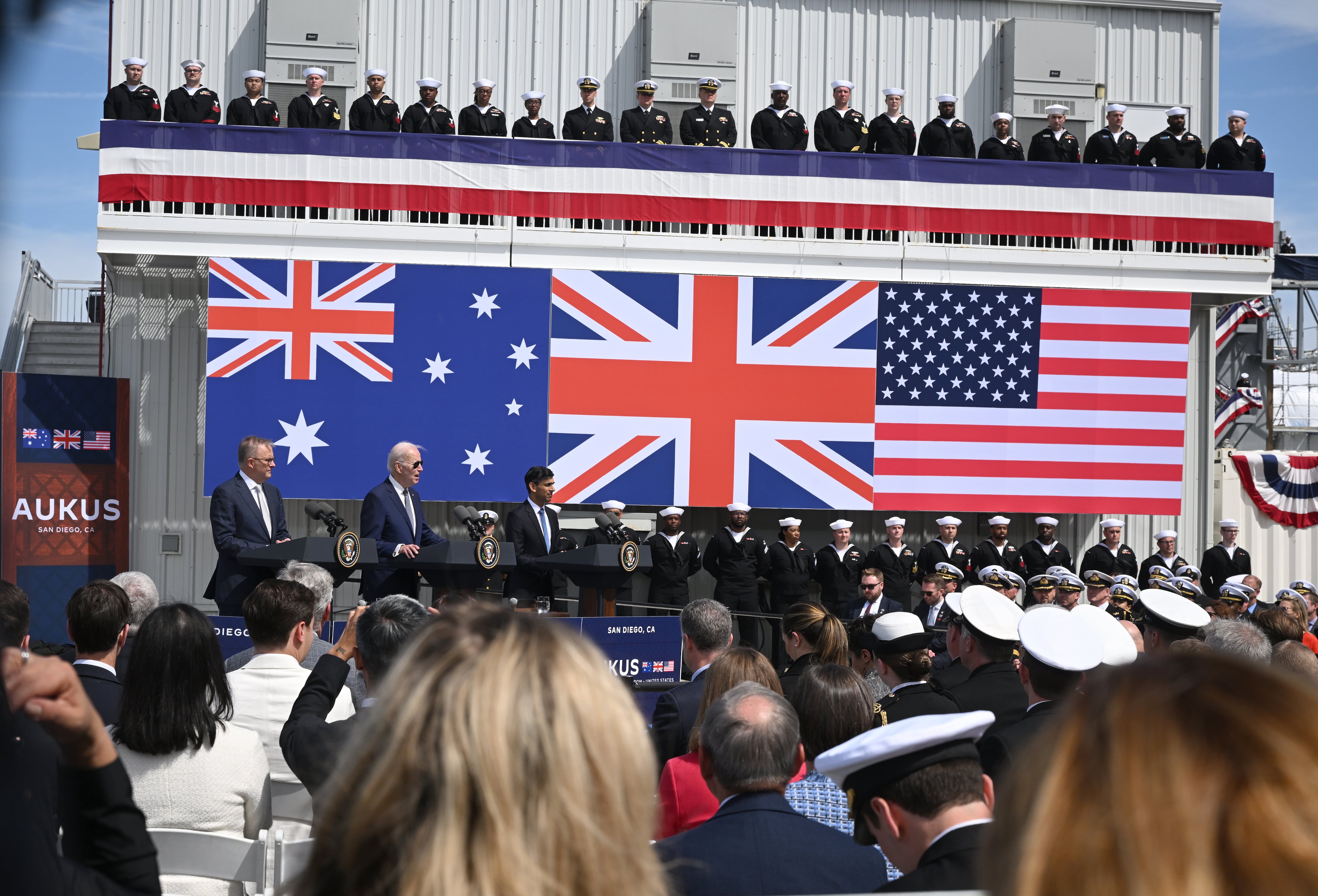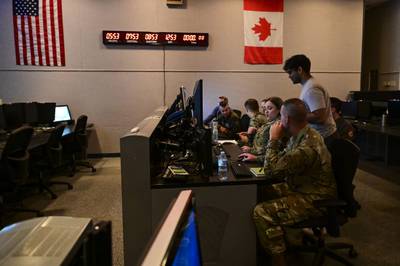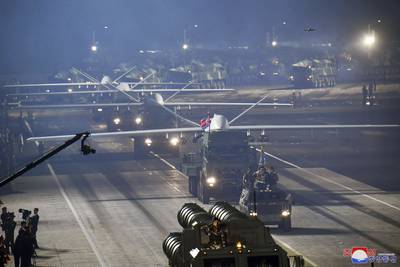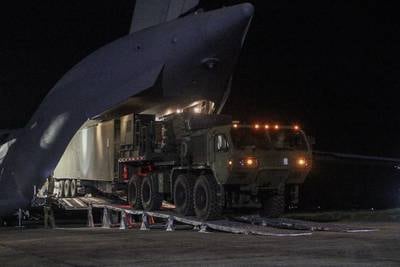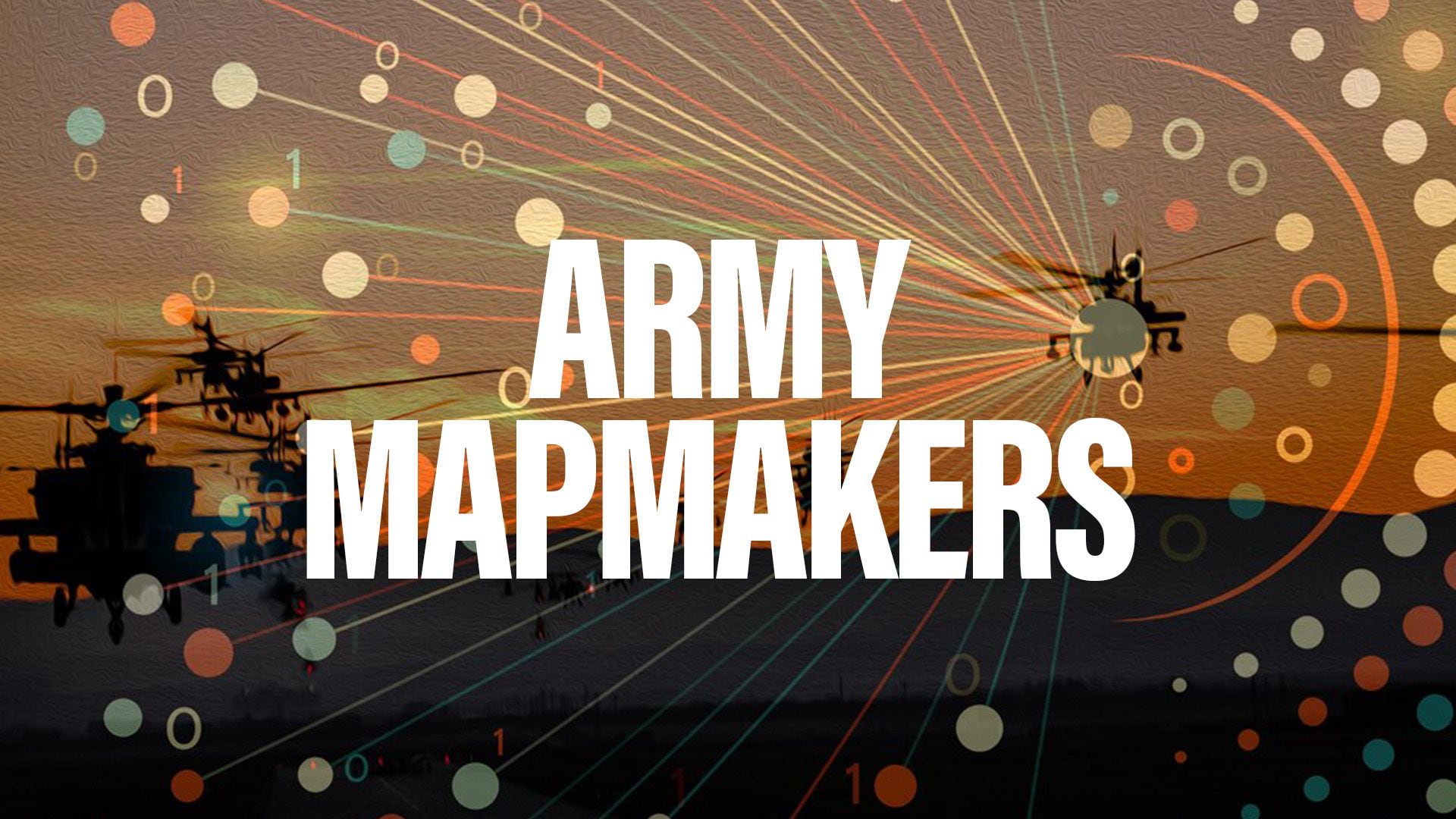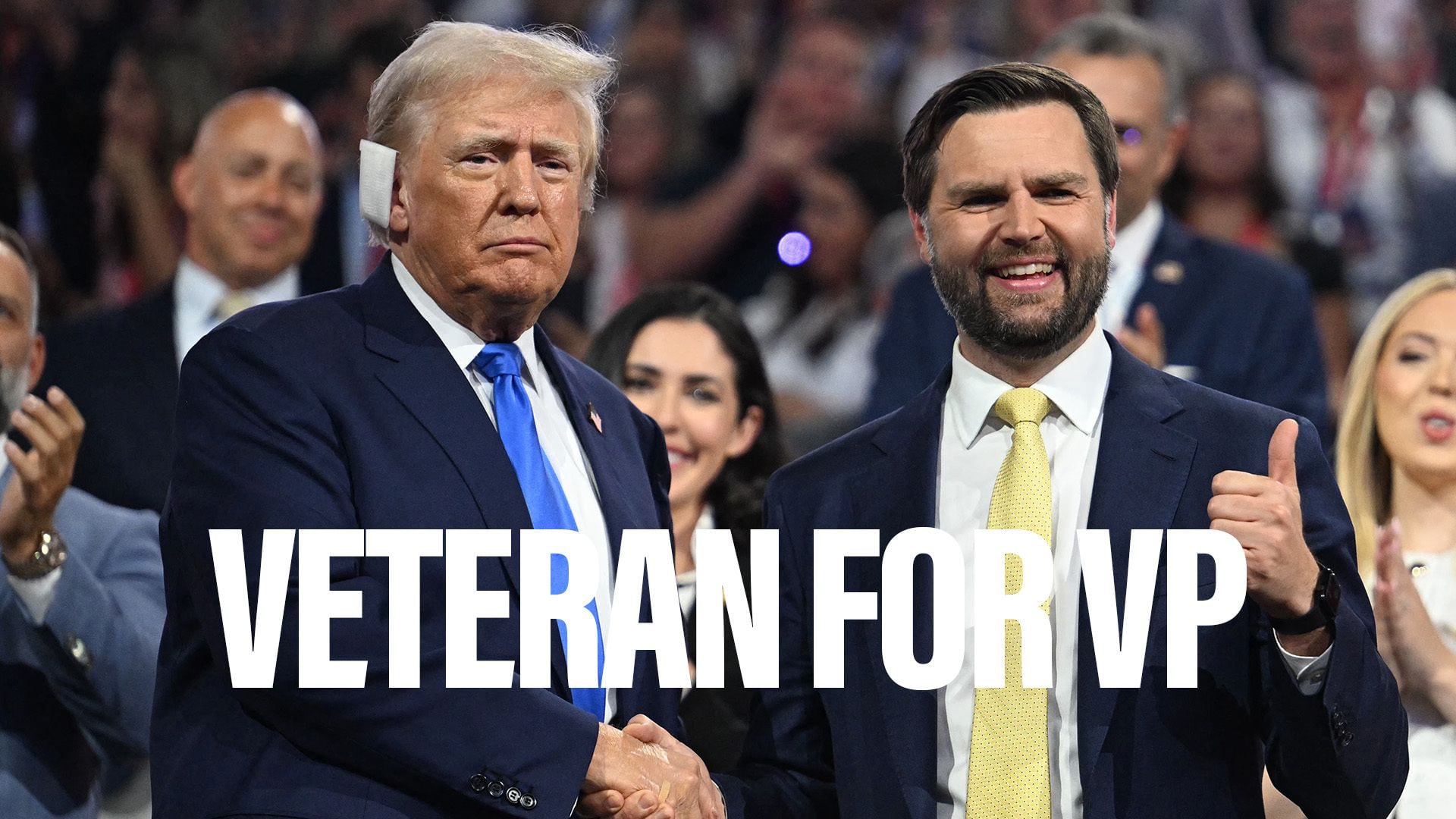WASHINGTON — Russia and North Korea are building a military partnership amid heavy U.S. sanctions and support for Ukraine, according to a new assessment by the National Security Council.
Council spokesman John Kirby briefed reporters on a map allegedly showing lethal aid flowing from North Korea to Russia to supply the latter’s invasion of Ukraine. In the last month or so, he said, “1,000 containers of military equipment and munitions” have followed this route.
“We condemn the DPRK for providing Russia with this military equipment, which will be used to attack Ukrainian cities, kill Ukrainian civilians and further Russia’s illegitimate war,” he said Friday, using an abbreviation for North Korea.
For the last year and a half, Russia’s war against Ukraine has emptied the military stockpiles of both parties as well as their international supporters. The fight has largely been one of attrition, in which either side advances only after pounding the other with artillery. Such combat requires a constant supply of shells. Ukraine fires about 8,000 a day, according to an official with Ukraine’s Defence Ministry.
Just as the U.S. and its allies have increased production and donated stocks to Ukraine, Russia has partnered with other nations to sustain its war effort. Most notably, Moscow has received a supply of Iranian-made drones that it’s used to batter Ukrainian infrastructure.
Russian President Vladimir Putin and North Korean leader Kim Jong Un met in Russia for several days last month, in which the two discussed bilateral cooperation and toured factories. The meeting concerned U.S. officials, who watched the rare summit between two adversaries, drawn together amid American-led isolation.
During their summit, Kim pledged support for Russia’s war in Ukraine. For his part, Putin mentioned North Korea’s “great interest in rocket technology,” a reference to the country’s fledgling space program that Russia could assist. North Korea has tried and failed twice to launch satellites this year, and the visit included a tour of Russia’s far east spaceport.
During March, July, August and September, Kirby said, the U.S. and its allies have sanctioned people involved in arms negotiations and transfers between Russia and North Korea, whose nuclear program has made it a global pariah.
“In return for support, we assess that Pyongyang is seeking military assistance from Russia including fighter aircraft, surface-to-air missiles, armored vehicles, ballistic missile production equipment, or other materials and other advanced technologies,” Kirby said.
He added that the U.S. has already seen Russian ships make deliveries to North Korea. These, he explained, may have been the first deliveries of Russian military equipment to North Korea.
Kirby used the assessment to again argue for supplemental Ukraine assistance. Earlier this year, the White House requested about $25 billion in further funding. The Senate nearly passed a bill including $6 billion, but later dropped that provision in late September as part of a deal to keep the government from shutting down..
At a meeting in Brussels of the Ukraine Defense Contact Group, a set of countries supporting Kyiv, U.S. Defense Secretary Lloyd Austin announced $200 million more in U.S. security aid. That brings the amount of money available to send to $5.2 billion, alongside about $1.6 billion in funds to restock the U.S. military’s inventory.
Congress can’t approve further aid unless the House has a confirmed speaker — an absence likely to continue after the previous Republican nominee, Steve Scalise of Louisiana, withdrew his name for consideration.
Noah Robertson is the Pentagon reporter at Defense News. He previously covered national security for the Christian Science Monitor. He holds a bachelor’s degree in English and government from the College of William & Mary in his hometown of Williamsburg, Virginia.
